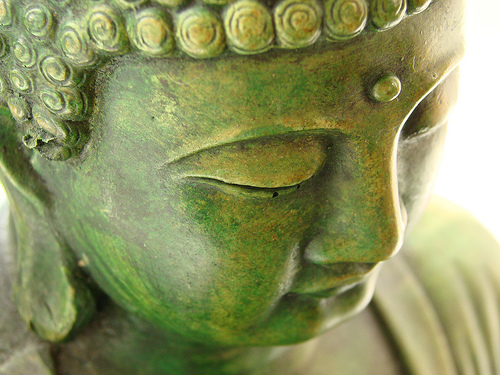“It is not hard to make decisions when you know what your values are.” -Unknown
Have you ever felt a strong instinct to say no to something—but then said yes anyway? I did this a few months back, when someone contacted me on behalf of a bestselling self-help author, asking me to promote his book.
As I’m sure you’ve noticed, I love sharing books that have made a difference in my life. And I generally choose which ones to feature based on a genuine desire to introduce them to you.
When this author’s marketing team contacted me this summer, asking if I’d help make his book a bestseller—without offering to send me a copy—I felt a strong resistance. It felt too much like a business arrangement to engender my earnest support.
Based on what I read about this writer online, I ascertained his book would be a valuable resource, so I agreed to share it—despite only receiving three chapters in a PDF.
As the time got closer, I recognized I wasn’t operating with complete integrity, and ultimately decided to renege. His team sent me a number of angry emails, letting me know the author is “the real deal” and that there was no one else on the planet like him, sharing what he’s learned.
When I recognized the high-pressure, fanatical tone, I instantly felt I’d made the right decision—not because there’s anything wrong with the book or the author, but because the circumstances themselves did not feel right for me.
Ironically, I’d done something I’ve written about before: I made a decision based on value attribution—meaning I assumed I should say yes solely because the author is established and renowned.
In a world where influence is king, we all need to be mindful of how and why we’re swayed if we hope to make decisions for ourselves, based on what we feel is right for us.
This is particularly pertinent when it comes to how we spend our money, as there will always be a groundbreaking new system, or a life-changing new course, often promoted by people we admire and trust.
That’s to not to say we shouldn’t support them and we wouldn’t benefit by doing it. It’s just that we’re best equipped to help ourselves when we say yes because we actually want to—not because we think we should.

Photo by jamiehladky
About Lori Deschene
Lori Deschene is the founder of Tiny Buddha. She started the site after struggling with depression, bulimia, c-PTSD, and toxic shame so she could recycle her former pain into something useful and inspire others to do the same. You can find her books, including Tiny Buddha’s Gratitude Journal and Tiny Buddha’s Worry Journal, here and learn more about her eCourse, Recreate Your Life Story, if you’re ready to transform your life and become the person you want to be.
- Web |
- More Posts













 Though I run this site, it is not mine. It's ours. It's not about me. It's about us. Your stories and your wisdom are just as meaningful as mine.
Though I run this site, it is not mine. It's ours. It's not about me. It's about us. Your stories and your wisdom are just as meaningful as mine.
Very good timing for me to read this… Sometimes it’s hard to say no, but when we know we should, our guts are pretty accurate…
It happened to me for a while, that I kept saying yes because I didn’t know how to say no. Eventually I made up my mind to say no, because I didn’t want to keep saying yes and be resentful towards the person asking me for favors.
I’ll need to sit with this idea for a while, Lori. While I get your point, I do feel there’s some blurring of the distinction between wanting to do something (based on your own values, needs and instincts), and doing it for someone else simply because you want to help them (even if their values may not align entirely with your own and even if it may feel like obligation). Is there a gray area for you?
I’ve also learned that saying no is ok. I’ve too have learned the hard way. When kindness is mistaken for weakness that person took a valuable piece of you. When you knowingly and whole heartedly give a yes…you have given that person a piece of your exsistance and life is rewarded by you and you will be rewarded by life in time to come.
This is so timely for me, as I’ve been wrestling with an inauthentic “acceptance” for the past day. I appreciate the reminder! Thank you!
It takes courage to stand up for what you believe in when you’ve already set the wheels in motion and said “yes.” In times like that, it’s much easier to tell ourselves that “the next time” we’re going to trust our instincts, but to rationalize that it’s okay not to change our “yes” to a “no” since we’ve already made a commitment. I admire your stance, and I’ll bet it made you feel good to stand up for what you believe in…that’s integrity.
For me, its generally a clear yes or no–either I want to do it, or I don’t. Many times I want to do something mostly to help someone else, but if I don’t genuinely believe in what they’re doing, that will trump my desire to be helpful. That doesn’t mean I can’t help them in some other way–I just don’t have it in me to say something I don’t truly mean or believe, especially when it comes to writing something for this site. If I promote all kinds of books and courses just to be helpful, how will people know what I genuinely recommend, and what’s a personal favor? I’d be curious to learn your thoughts on this!
You are most welcome!
Thanks Kara. It did feel good, actually, especially since I was initially scared to back out, but then I felt certain I did the right thing. That was worth the discomfort!
I guess, like everything in life, it depends on the situation. I agree w/you that on my site I will do my best to care for its integrity and mine by doing/saying only things I believe in. But with personal stuff it’s a tougher distinction between total honesty and those little white lies we all use now and then — either when we don’t want to hurt someone’s feelings, or when we feel the result of the truth may be something we’re not ready to take on at that moment.
Especially among friends I feel the hard truth is usually a great gift. (I should send you a piece about one such incident that changed my life.)
I would not — and have not — reviewed a book without being honest in my response.
I know what you mean. Kindness is just as important as integrity! I would love to read your piece. =)
I’ll try to pull those thoughts together according to your submission guidelines — hopefully by week’s end. Thanks!!
I struggle a lot with saying “yes” out of obligation. There must be a balance between maintaining relationships and doing things just because you want to right? I’m working out the kinks on this one but any thoughts would be most welcomed.
Yes, I think it’s all about balance. I actually wrote a post about this a couple years back:
http://dev.tinybuddha.com/blog/10-tips-balance-self-interest-and-sacrifice-for-a-wonderful-life/As a former people pleaser, I find it really empowering to say no when I genuinely don’t want to do something. It goes against my instincts, but I’m a better person for learning to work through that discomfort!
A traffic signal is a helpful metaphor I like to share with others. First you see a yellow light (warning you to slow down and prepare to stop) and then you see the red light (mandating you stop).
How many times have you seen that yellow light, and rather than slow down – you step on the gas? You made a quick decision to ignore the warning, take the risk (ticket or accident) and forge your way through the intersection.
Or perhaps you weren’t even paying attention and last thing you remember is the crash? You were thinking about the destination (fun, $, etc.) and can’t really even remember how you got to that intersection in the first place.
This is one of life’s lessons for us; pay attention to the YELLOW lights. They are out there, whether you chose to see them or not.
It’s up to us to follow our gut & values.
Thank you for the great post.
What a great analogy. I know how tempting it can be to run those yellow lights! Thanks for sharing this. =)